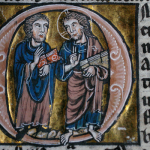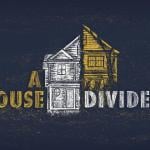“WILLARD”: I went to see “Willard” last week with (appropriately) The Rat. I recommend it highly, with a couple caveats. (Yes, it is a movie about killer rats, and if you don’t want to see a movie about killer rats, you should avoid it. But I really, really wanted to see a movie about killer rats, and in that particular genre, it is hard to imagine a movie better than “Willard.”)
First, the caveats. Crispin Glover cannot scream. You can see how this might be a disadvantage in a horror actor. When he has to raise his voice, he goes all chalky and irritating.
The movie also features a really ugly caricature of age–specifically, female aging. This is by far the worst thing about the movie. I hate the loathsome-old-burden shtik; it’s cliched, cruel, and a servant of the culture of death.
Nonetheless, there are a lot of terrific things about the movie. The credits set the dark visual tone; they reminded me strongly of the credits from “Seven.” The rats are, of course, hugely fun, hideous furry writhing waves of them. There are nods to “The Birds” and to the original “Willard” (1972, I think). The link to “The Birds” is especially strong; like that movie, “Willard” doesn’t bother to explain anything. It relies on the logic of emotional identification and elective affinity. The movie plays on the audience’s expectations in exactly the right way: gratifying us by giving us the small anticipated delights we crave (as soon as we see a computer mouse in a crucial scene, we know it will be replaced by a live rat, and “Willard” does not disappoint), but in matters of plot and character refusing to go along with the usual movie twists and unsurprising surprises.
The main point of the movie is Crispin Glover, playing a man who is not very good at being human. His angular, miserable face; his pale voice (“Food! food!” he says softly, shaking a bag of chow over the swarming rats, his tone somewhere between cajoling dog-trainer and indulgent schoolmaster); his stooping shoulders (there’s one scene in which he slinks off with his head so low it looks like he’s been decapitated). Except for the screaming problem noted above, he’s terrific. Probably the harshest moment in the movie is the scene in which Willard quietly confides to his rat Socrates, “Today was a bad day, Socrates.” For a man who hasn’t had a good day in his entire life, it takes a lot to rise to the level of “bad day,” and the defeat in Glover’s voice is chilling.











